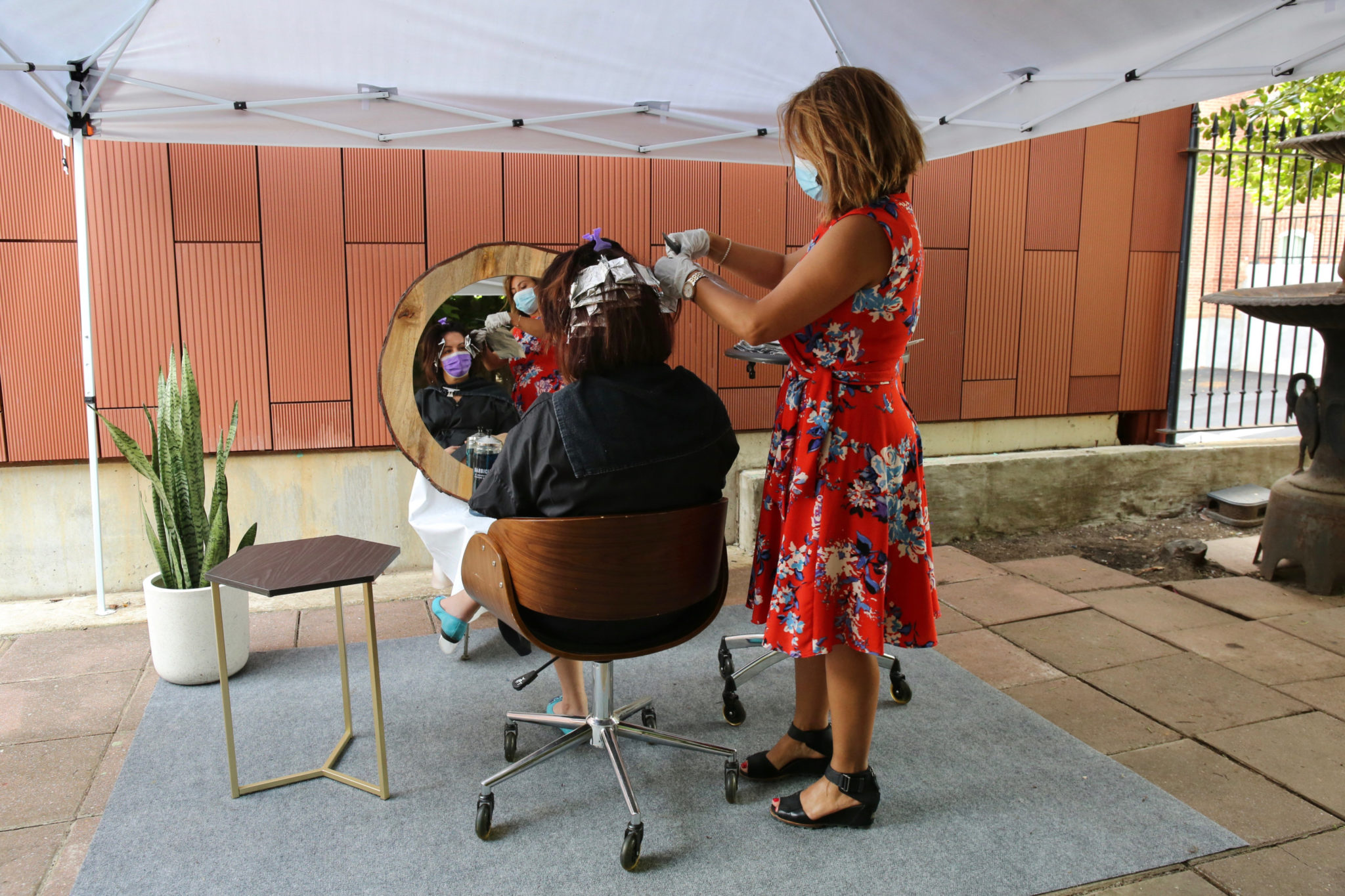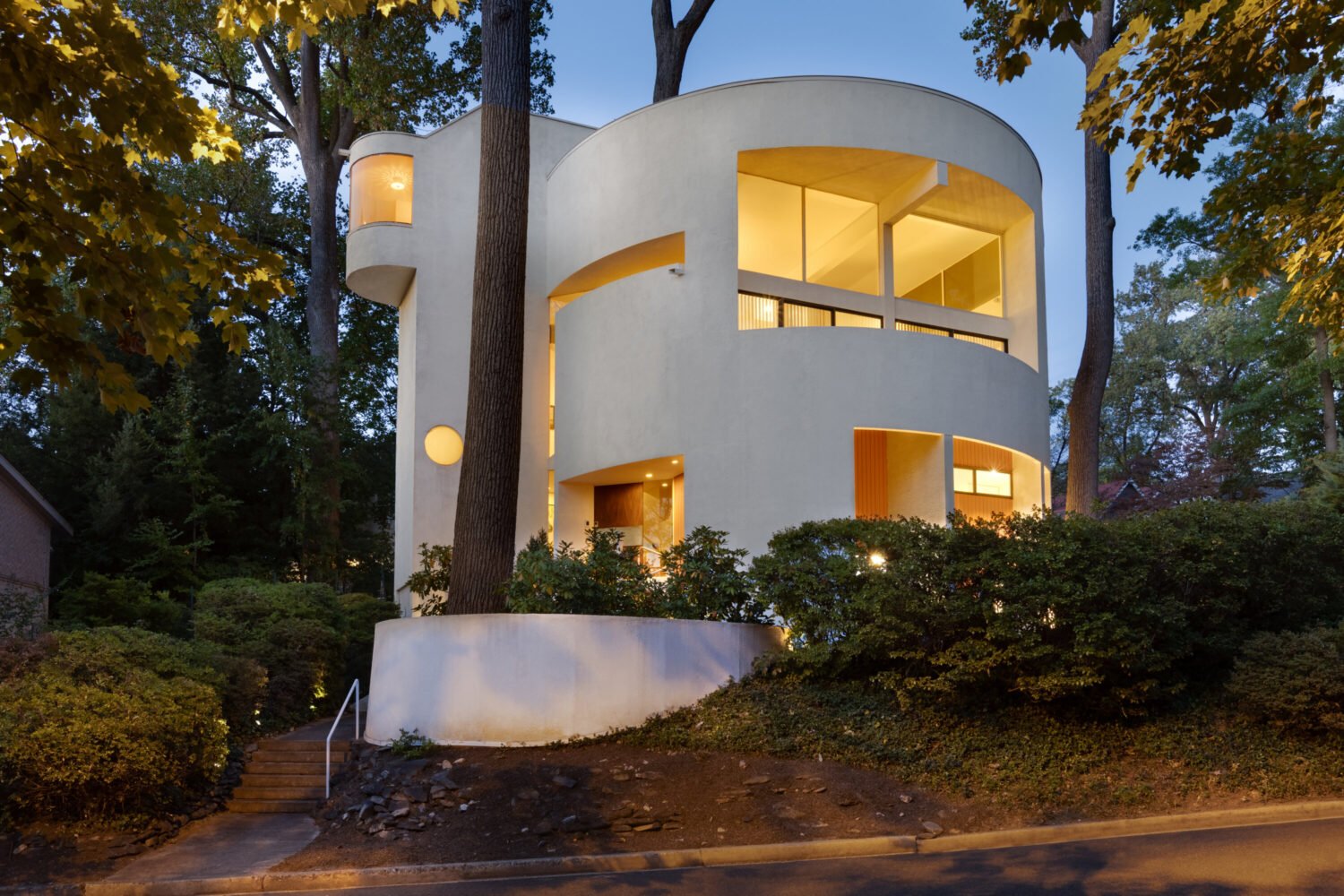It’s not just masks, temperature checks, and barriers around the stylist chairs. Here are a few more things to expect at your next salon visit.
1. They’re going to be open a lot more hours
Pre-pandemic, Bloom Salon in Tysons was open five days a week. Now, to help keep some distance between customers, it’s open every day starting as early as 7 am. Salon deZEN in Alexandria is open some days from 8 am to 9 pm.
2. But it may still take longer to get an appointment
At Bloom, clients eager to get their hair done after months of lockdown were shocked to learn in early June that the next available appointments weren’t until July, says co-owner Moira Grasso. High demand is part of it, but so are new rules, including a limit on how many people can be there at one time. Also, depending on jurisdiction, salons are either not allowed to or have chosen not to double-book—i.e., when a stylist schedules two clients at once, working on one while another’s color processes. At Izzy Salon in Georgetown, Jérôme Obry says each stylist is working only two or three days a week.
3. Your appointment may be quicker
Some salons—recognizing that clients might be anxious sitting inside for an hour or two—have introduced speedier services. New “express color” at Bloom, for example, takes just 30 minutes: A stylist applies dye to a client’s roots, wraps the hair in cotton and a plastic cap, and sends her home to rinse out her own hair.
Express services don’t work for everyone. “I service the Black community, and a lot of the things we do take longer,” says Yene Damtew, owner of Aesthetics Salon. “The recommendation of trying to keep services to an hour is not realistic. I think whoever made these guidelines did so without an understanding of different textures.”
4. You may be ushered to a private room rather than a row of chairs
Because spa services such as facials and waxing were not allowed locally as of press time, some salons have turned spa rooms into private hair stations, for extra social distancing. Others were already set up that way. “I have what’s called a suite rental, in Bethesda, where everyone has their own room,” says Jamie Simon. “I think that’s going to be very attractive going forward, because it’s one-on-one. Everyone comes in with their masks and goes to their room. There’s no reception area.”
Even in salons with a reception area, don’t expect to linger. Erin De-rosa, owner of Sense in DC’s Park View, has taken magazines off the tables and asks clients to wait outside until their appointment. When Damtew reconfigured her Arlington salon, she eliminated her waiting room and instituted curbside check-in.
5. You might get your hair cut outside
Salon Leau, which is in a three-story townhouse in Georgetown, always had a small back patio—now it’s equipped with a chair and mirror. “There are plants and trees. It’s nicely manicured,” says stylist Tasha Gaymon. But “the client does have to go inside to get shampooed. If they want blow-drying, we recommend they come into the salon. It’s too hot and humid outside.”
6. You may leave the salon with wet hair—if you even get it washed
Because of the fear that blow-drying could spread virus particles, some salons are asking clients to skip the blowout.
That’s if your hair is washed. Some salons are skipping the shampoo, too, in order to limit interactions. Bang Salon on U Street, for example, is asking some clients to come in with clean hair to do dry cuts.
7. You’ll need Venmo
Or PayPal or Apple Pay or another contactless form of payment. And while many salons once insisted on cash tips, they’re now asking clients to Venmo those, too.
Says Moira Grasso of Bloom: “For clients who bring cash in an envelope, we say please don’t lick the envelopes.”
8. You may pay a Covid surcharge
The plexiglass, the disposable gowns, the extra sanitizing—with cleaning products hard to find and priced at a premium—come at a cost. And that’s sometimes passed on to customers. Izzy Salon tacks on a $7 surcharge. Aesthetics Salon adds a flat $10.
9. Those first few minutes with your stylist may be awkward
“You can’t greet people the way you normally do,” Obry says. “You can’t shake hands. You can’t give a client a hug. It’s very, very strange right now. Those first five, ten minutes are tense. You need to re-engage with them a bit, but then after that, it’s fine.”
Masks, stylists say, create a barrier. At Salon deZEN, owner Maria Elizabeth is asking staff to amp up the verbal friendliness when wearing masks.
“The sisterhood, the communal aspect, being in an environment where you talk about the stresses of life, is changing,” Damtew says. “Clients came in, ‘Hey, girl,’ and gave you a kiss on the cheek. That’s all stripped away. You don’t want to talk as much because the mask is hot. People are silent.”







